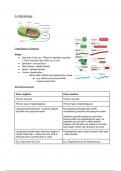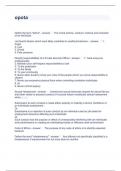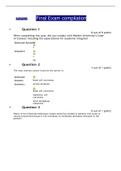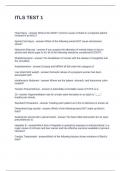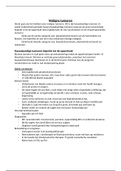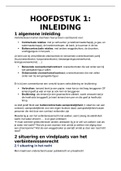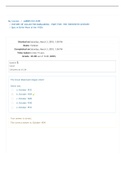Summary
Summary A2 level microbiology notes (WJEC)
- Module
- Microbiology
- Institution
- WJEC
Biology A2 level 3.4 microbiology. These notes were formulated using class notes, the WJEC study guide and past papers. These notes helped me to achieve an A* at A level biology!
[Show more]
